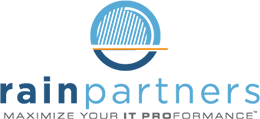IT PROfile: Jean Holley (Group SVP & CIO, Brambles Limited)
How did you get into IT?
As a kid, I loved taking things apart and putting them back together. I often was curious about and marveled at how things worked, and just imagined what I could do as a grown-up using this skill.
But back then, in the 60s, we didn’t have anything called “IT”. We had mathematics, or electrical engineering. In college I took a rudimentary computer science class, but I was studying to become an actuary statistician.
At that time, you did a lot of statistics by hand, but I figured out how to program a lot of my formulas into a computer. Suddenly, my data sets could be much larger, and my accuracy became so much better. Technology for its own sake had always been interesting to me, but I saw how applied technology could really make a difference.
That’s when I switched my major to computer science. After I graduated I went to work within the steel industry. There I kept one foot in the pure engineering space—building and constructing processes—and one foot in the applied side— using technology to solve business problems.
What skills helped you bridge the gap between IT and the business?
It’s so simple you’re going to laugh, but the skill that helped the most is curiosity—the curiosity to learn and understand the business.
Some technologists come from the school of “Let me build this, and then I’ll tell the business how they can use it.” It’s not that way. It’s business first, supported by technology. Knowing that, and having that curiosity about the business will drive you to ask the right questions, like:
How does the business work?
How does the business make money?
What underlying values does the business serve?
This curiosity will also drive you to reach out and build a network of mentors outside of just other IT professionals.
How did you develop relationships with your non-IT mentors?
Because I was so curious about the business, I reached out directly to anyone in the business who could mentor me about it. But I tell people: “Not every mentor needs to come from your professional environment.”
Think about it like this. Draw a little circle, and imagine it as a pie with three pieces. One piece is your work environment, the other piece is your family and friends, and the third is your community. People often think mentors only come from work, but they can come from your family and friends, and your community too.
And my mentors weren’t always formal. I had academic mentors, non-profit mentors, sales mentors, all people who worked in very different areas than me. I had mentors who were 10, 20 and 30 years older than me, and they let me see things from their eyes and learn their wisdom. I had mentees who were 20 years younger than me who let me see things their way. I used every slice of the pie to find mentors.
I tell people; “You’re actually surrounded by mentors and mentees all the time, it’s really just keeping your eyes open and looking for people you can learn from, and people whom you can help.” That’s all this business of mentoring is all about!
How can IT pros get the most out of these relationships?
- Start building your network before you need to use it. And remember that you have to give before you get. A network is like a bank account—you have to put in deposits before you can make a withdrawal.
- Be Humble. Give other people credit. Put deposits in the bank. Say “Thank you.” It sounds basic, but it works. If you succeed without being a showboat, people will love you.
- Deliver Results. Networking is important. But it’s even more important to have results you can point to. Having results puts points on your scorecard; and combined with networking, increases your credibility.
Any last words of advice?
As an IT professional, you of course have to stay up-to-date on technology. Whether you personally use each piece of new technology or not, you still need to listen, learn, and have a perspective on it. If you don’t, you can lose perspective, and run the risk of becoming out of touch and not as effective as you can be.
But even though the technology matters, you will go much farther in your career if you aren’t a pure technologist. You need both the technology skills and the business skills. Go back 10, 20, 30 years and that was the case. Go forward 10, 20, 30 years and that’s still going to be the case. Speak both languages—IT and the business—and you will optimize your value.



